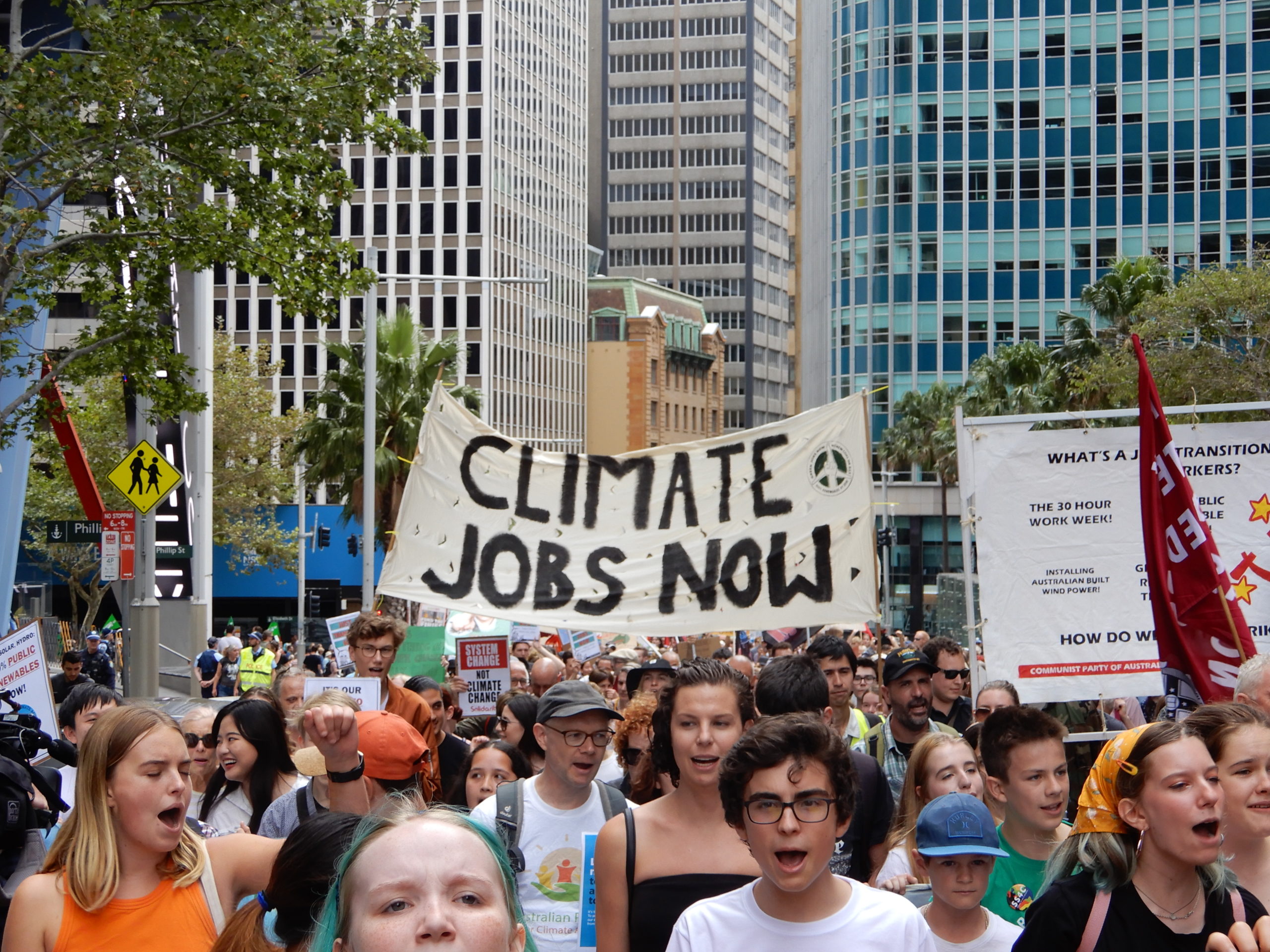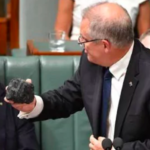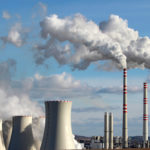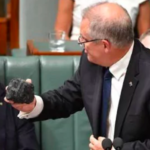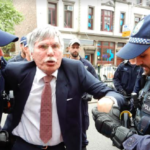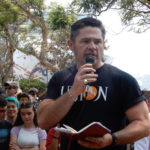A Just Transition: An Interview With NSW Greens MLC Abigail Boyd
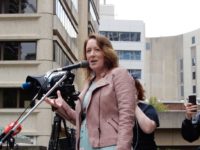
The 2019-20 bushfire catastrophe saw Australia become ground zero of the climate crisis. A recent study found that more than 20 percent of forest on the mainland was engulfed by the flames, which is in a scope that’s never been seen before anywhere on the planet.
And as the blazes were subsiding federal parliament reconvened in Canberra with prime minister Scott Morrison fresh from his covert holiday in Hawaii, as well as a few more recent jaunts into regional towns, where he was shouted down for his flaccid response to the fires.
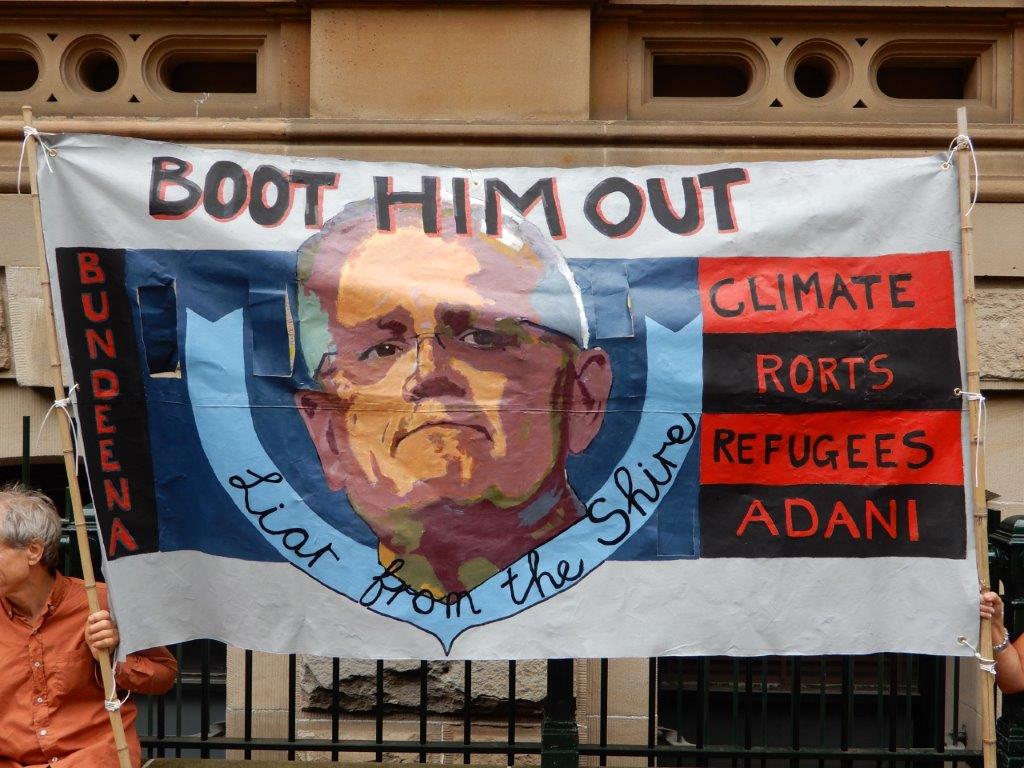
Then on the third sitting day of parliament, the PM appointed Keith Pitt as the new resource minister. And as the last carbon emission induced flames were put out by the rains, the minister announced that he sees the country’s future in further investment in coal, gas and uranium.
NSW premier Gladys Berejiklian got in on the climate destroying action too. The PM cut a deal with her, whereby the state provides an additional 70 petajoules of gas in exchange for $960 million. And they even managed to wrap up the deal in “good for the climate” rhetoric.
The great dividing range
All these political manoeuvres were carried out directly in the wake of mass mobilisations of grassroots Australians across the country, calling for action on climate before the little taster that nature gave us over the summer gets a whole lot worse.
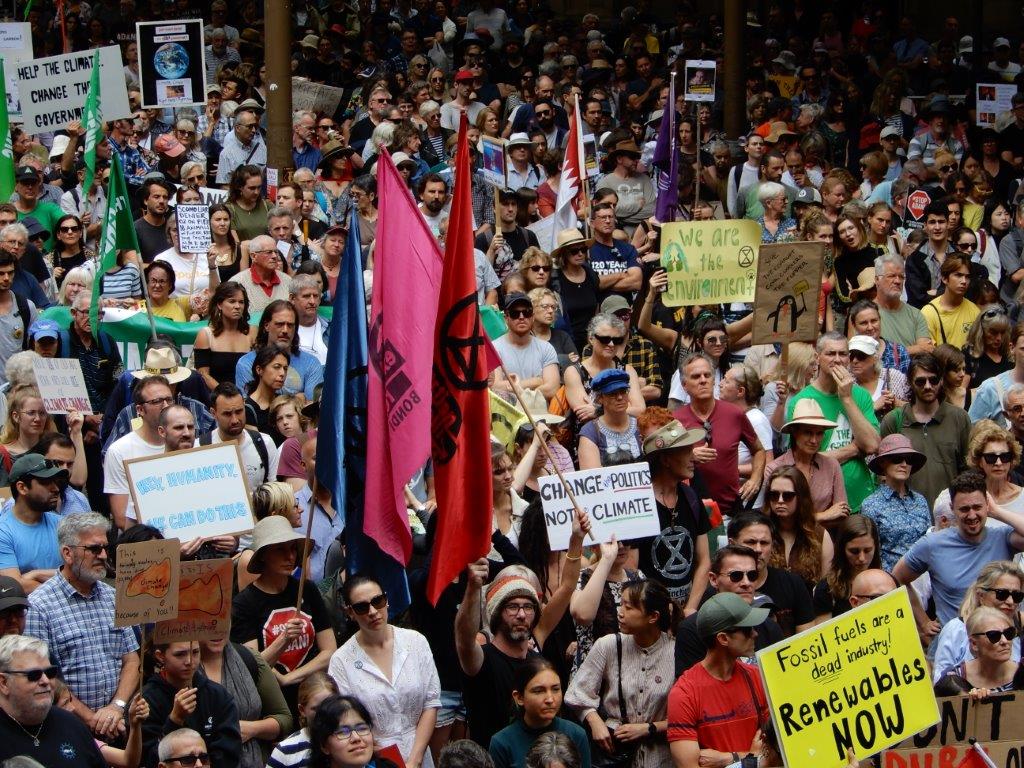
While it’s becoming increasingly apparent that those representing the major parties in parliament ought to be wearing pins on their lapels with the logos of the fossil fuel companies they’re actually representing in the chamber, rather than focusing on the constituency they supposedly stand for.
For many living in bushfire ravaged regions, the flames weren’t even out as the pollies started cutting fresh deals to extract more fossil fuels from the ground. And for those living in regional towns that rely on carbon emitting industries for work, they’re left questioning a viable future.
Towards renewables
NSW Greens MLC Abigail Boyd recently moved a motion in state parliament calling for a moratorium on all new fossil fuel projects, as well as the “complete decarbonisation of our economy and a transition to a jobs-rich future powered by 100 percent renewable energy”.
And key to the Greens climate spokesperson’s proposal – which is now shared by a majority of Australians – is that it’s a “just transition”, meaning those people working within fossil fuel industries will be guided into new ones in an equitable manner.
Sydney Criminal Lawyers spoke to Ms Boyd about how a just transition into renewables would work, why she’s frustrated with how the major parties are responding to climate and the importance of keeping up the momentum for change that was sparked by the bushfires.
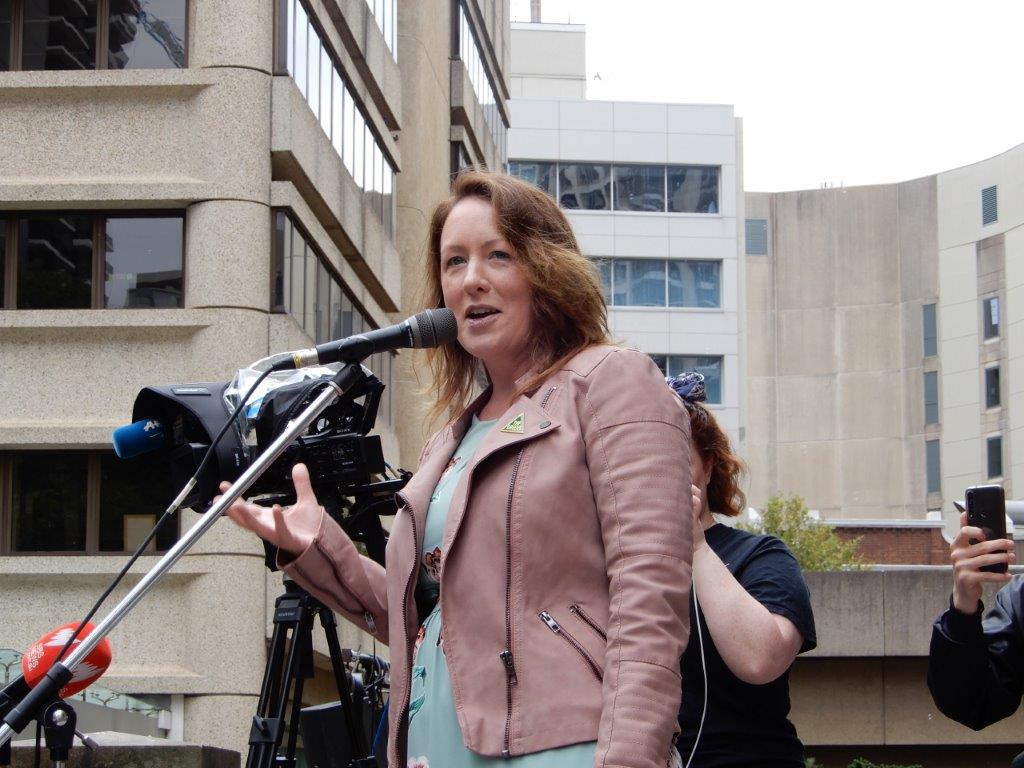
Firstly, on 27 February, you moved a motion in the NSW Legislative Council calling for the decarbonisation of the economy and a move to renewable energy.
You’ve stressed that this should be a “just transition”, meaning those working in fossil fuel industries won’t be left behind.
So, Ms Boyd, what are we talking here? How would NSW transition to renewables in a just manner?
I get really frustrated at the major parties because they don’t acknowledge the writing on the wall. And that’s that we are on the verge of a major economic transition. You can see in the worldwide economic indicators that the world is moving away from fossil fuels.
We need to move away from fossil fuels for climate change reasons. But, even for basic market reasons based on price, we are moving towards cleaner, greener energy and more sustainable ways of doing things.
The failure of governments in Australia to acknowledge that means they don’t make plans around it. So, that doesn’t stop the renewable energy revolution from happening, but it does stop it from happening fairly.
What I mean by that is if you know there’s going to be some changes coming to the economy, and you don’t want people to be left behind and to struggle during the transition, you make plans early on, so you can do it in a way that cushions impacted communities.
I’ll give you a solid example. If you have a coal community and you know the coal mine will eventually be closed and there won’t be new jobs in coal, the responsible thing to do would be to get that community together with relevant industries and local government and plan job-to-job transition.
So, plan the new industries that the town could rely on for its jobs, and work out what you need to do to get there, whether that be education, upskilling or financial support packages.
Whatever it is that you need to do to make sure that when those jobs dry up, the people in those communities have jobs to go to.
So, with a just transition, we’re not talking about anything too difficult, rather it would be government getting on board with what’s fast becoming a worldwide trend?
Yeah, exactly. They’re doing it in other countries. They’ve been doing it in Germany. And when you have fair leadership about what has to happen, then you can make really clear plans that ensure things are done in an equitable way.
You can work on a community by community basis, which seems to be the best model to do it.
But, what we have in Australia is governments that don’t even acknowledge that we’re going to have any change to our reliance on fossil fuels. And if you are just relying on the market, there’s a real risk that communities will get left behind.
The awareness that there’s a need to transition is growing. In your understanding, what’s the sentiment like within the communities that are going to be most affected in regard to transitioning to renewables?
People are really scared that they’re going to get left behind. And they’re also living within this perpetual state of uncertainty, because no one is taking a firm stand, whether that be the Coalition or Labor.
There’s no clear leadership. And they’re not talking to affected communities and industry groups about what they’re going to do if those jobs dry up.
From my experience with communities – particularly in the Hunter Region, where they’ve had coal at their core for a long time – even they can see the writing’s on the wall, and they’re worried about their futures, as nobody is planning for them.
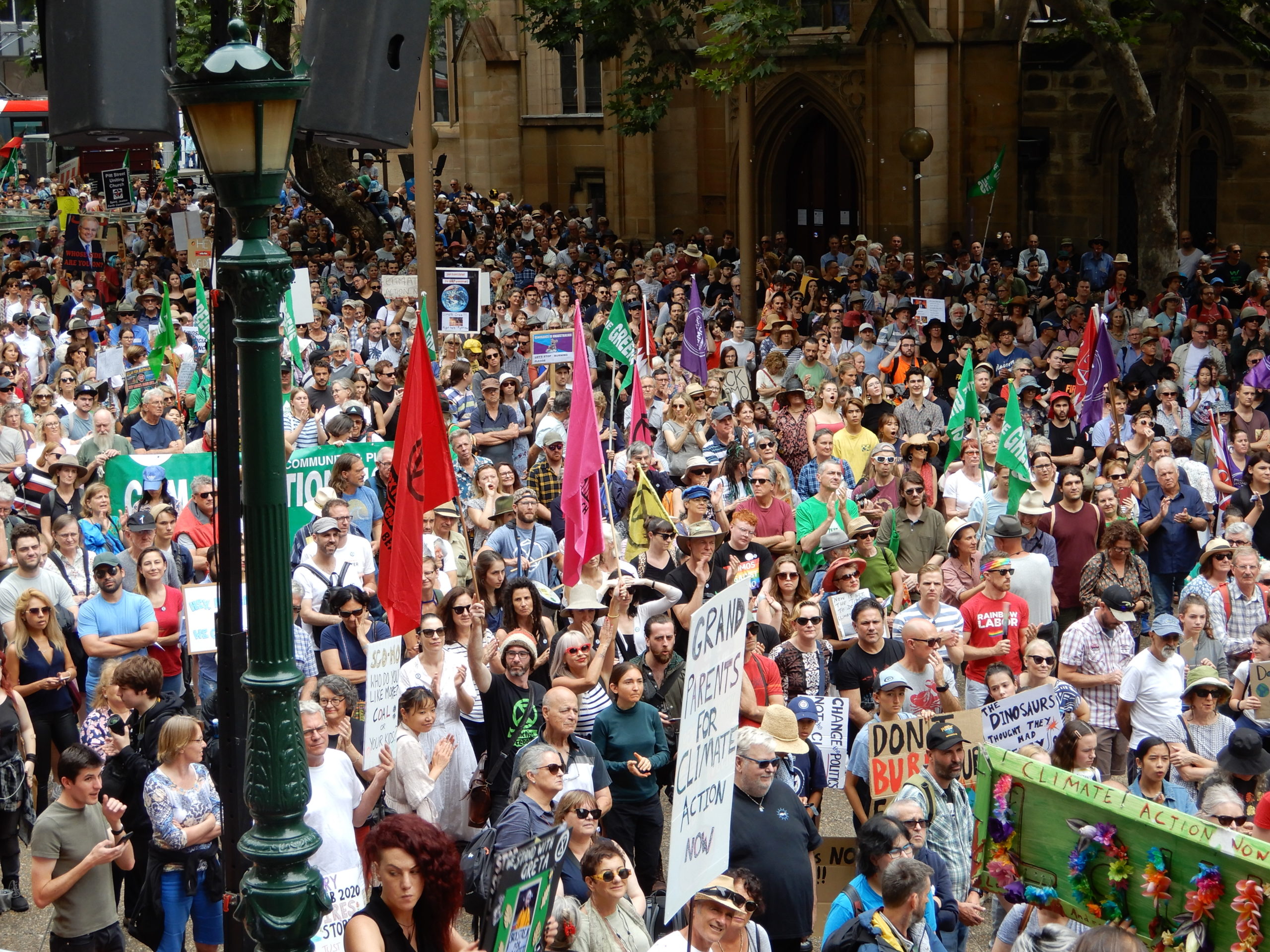
The flipside of your recent motion is that you also called for a moratorium on all new coal, gas and oil projects in NSW.
There are around 14 new coal projects seeking approval in this state. And the premier just signed a deal with the federal government to greatly expand the gas industry.
What would it mean for the state to stop investing in new projects?
There are two reasons why we need to stop new fossil fuel projects. The first one is that the science is telling us we have to.
Again, I get frustrated in particular at Labor, who acknowledge that the climate science is real, but then don’t acknowledge that the scientists are telling us that we have to keep fossil fuels in the ground if we are to survive. That disconnect is really frustrating.
But, also, the other reason why we need to leave those fossil fuels in the ground, and not permit new projects, is because of that staged transition that I was talking about.
If you’ve got a bunch of workers, who you know are going to be needing new jobs, and you know that you’re going to have to do the work of transitioning those people into other acceptable jobs, creating new jobs in new coal projects is really irresponsible, because you’re increasing the pool of workers that you need to transition.
There are a lot of arguments that get thrown at us when we suggest this. One of them is that there’s some kind of need to have coal jobs in this state. But, we know that at the moment, fewer than one in 200 people in NSW are employed by the coal industry.
And that number is going down, because these companies are increasing the levels of automation in those mines. So, these workers are already facing quite precarious employment conditions.
The other thing that we hear is that the coal industry is a large part of our revenue stream, and we know that’s not actually true. Coal royalties are less than 2 percent of the NSW budget. And we see very little of the revenue from exporting fossil fuels out of NSW.
So, basically, my message is, to the Liberal government in particular, that we don’t need new coal projects to keep our economy thriving. There are opportunities in this transition.
NSW can be a leader in renewable energy production and export. And we have real opportunities for creating sustainable industries, particularly in places that have suffered from neglect. I’m thinking of regional areas, when I’m making that comment.
So, there are opportunities here, and we certainly don’t need to keep relying on coal, because of some misplaced fear that it will impact on the economy if we stop opening those mines.
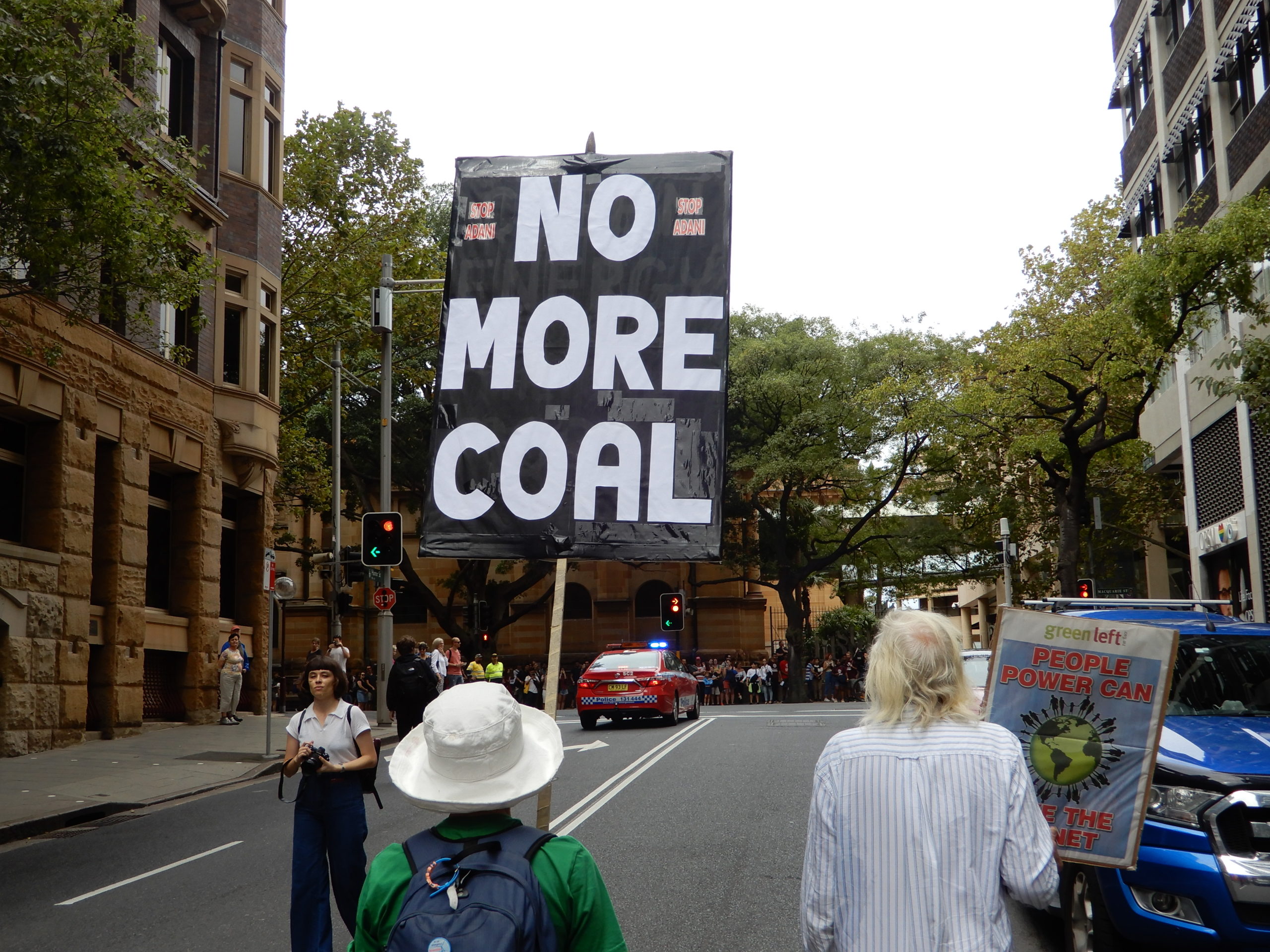
You’ve pointed out that by the end of the decade the US solar industry is likely to be the second biggest employer in that country. Forbes has reported that over 70 percent of coal plants in the US are now more expensive than new renewables.
What’s happening over there? And is this being reflected in any way in NSW?
The US experience with solar shows that when you have a regulatory environment that supports the solar industry, it can really thrive.
So, what happened in America, just after 2008 and the global financial crisis, there was a stimulus package issued that included a federal tax credit for solar.
They also extended a credit program for residential installations of solar power and a whole lot of other things that were then supplemented by state government responses, particularly in California, which has by far the largest solar capacity in the country.
The Californian congress passed legislation requiring that 50 percent of all electricity in that state has to come from renewable sources by 2030.
Now, these steps that we’ve seen both federal and state governments take in the US produced a very stable regulatory environment that allowed for the adoption of solar.
So, we now have solar employing more people in America than coal, and also being cheaper to operate than coal.
This is the kind of thing that we could be doing in Australia, and in NSW. But, unfortunately, it’s not being reflected here, because again, we have a very uncertain regulatory environment.
But, in recent years, we’ve also had a regulatory environment that has actively hindered the take up of renewables, because of the amount of support and subsidies that we give to the fossil fuel industry.
Straight after the bushfire crisis, the Morrison government returned to parliament and appointed a new resource minister who called for new fossil fuel exporting projects in order to lift standards of living.
What’s the stance of the federal Liberals’ counterpart in this state, the Berejiklian government?
We’re not really sure what they’re going to do with the deal with the Morrison government. This idea that we need to export fossil fuels to improve standards of living is pretty absurd.
This is particularly in NSW, when you look at the impact of the opening of the gas market through export on the east coast, which resulted in an increase in our energy bills by a substantial amount.
We now have gas prices that are three times what they would have been if we hadn’t begun exporting gas. So, gas in NSW is a major contributor to increasing our cost of living.
This idea that we now need Santos to come along and destroy the beautiful Pilliga, and the towns and farms in that area, is not a welcome suggestion.
The Liberal government haven’t told us yet whether they intend for that project to go ahead, or whether they will allow for the import terminal that was suggested in that deal to be set up instead.
Either way, it’s a disaster. We are very much on a wait and see on that at the moment.
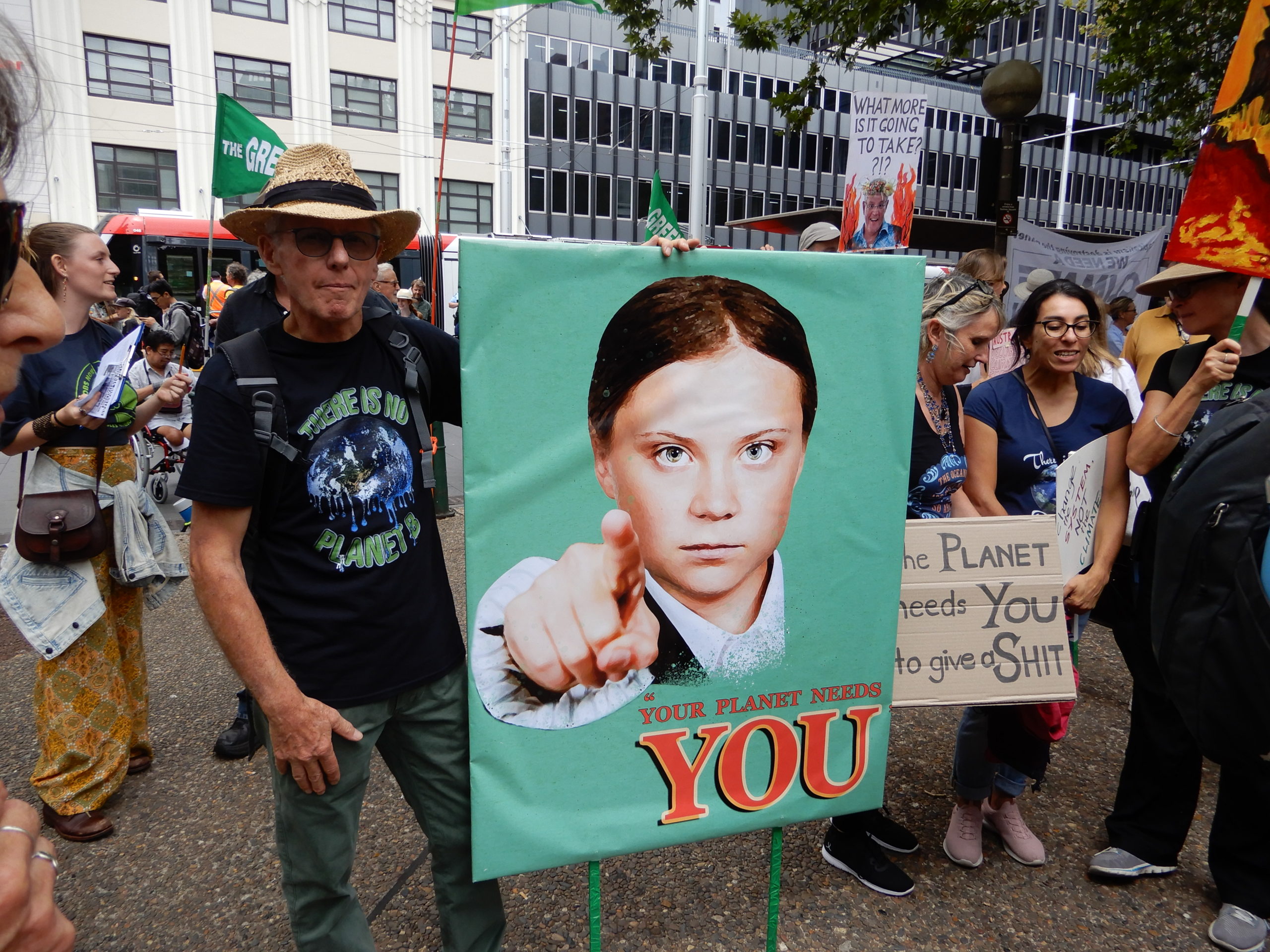
The Morrison government doesn’t seem to have any real climate goals, besides investing in more fossil fuels. Anthony Albanese has stated his party is aiming for net zero emissions by 2050, without backing this up with any concrete plans.
What do the Australian Greens recommend in terms of dealing with the climate crisis?
We for a very long time have been calling on state and federal government to heed the science on climate change, and to plan early. We’ve been talking about a just transition for decades. You need to plan early to transition out of fossil fuels.
There’s no doubt that we’re a really long way behind where we ought to have been at this point, especially compared to other countries.
But, we’re definitely not too late. And as I said before, with the challenges of the climate crisis, there are opportunities to become a renewable energy exporter.
There are opportunities to improve our public transport networks and boost regional towns with targeted investment in sustainable industries.
There are opportunities to reduce economic inequalities and increase our leisure time. All of this can be wrapped up with a sensible economic transition.
The Australian Greens policy is net zero emissions by 2040. As part of that, we have a plan to phase out thermal coal by 2030. And, of course, no new coal being approved in the meantime.
We see those goals as being achievable. We don’t see them as breaking the economy. We see them as providing us with an opportunity to take the bull by the horns and improve our quality of life in the process.
Lastly, the nation has just gone through its worst bushfire crisis ever, which was caused by changing climate.
The Australian public got behind the climate movement like never before. However, as mentioned, the federal government is back to “business as usual”.
Ms Boyd, how do we keep climate on the agenda, when most mainstream politicians seem to now want to wash over what just happened and focus on other issues?
From my personal experience, I came back from that bushfire season and sat in parliament for the first time, knowing that the majority of people in NSW want to see really strong action on climate change.
But, I then had to sit across from a government that’s still talking about supporting the coal industry, and talking about the emissions coming out of coal seam gas, and all of these other projects that run completely counter to climate science, and putting the profits of private companies ahead of the wellbeing of the state.
It’s a really strange experience and quite absurd to see that disconnect between what the public want, and what the government is doing.
To be honest, I don’t have faith in either of the major parties to take the action that we need on climate.
A major part of my concern is due to the connections that they have with the fossil fuel companies, whether that’s through the hundreds of thousands of dollars in donations, or through the revolving door that exists between ministers’ offices and the fossil fuel company boards.
It’s really hard to take them at their word when you know that there’s that level of connection, potential influence, and access going on behind the scenes with the fossil fuel industry.
So, back to the question, the fact is we have a really hard task ahead of us. But, what choice do we have? We have to keep the pressure up. And it’s only by being louder than the fossil fuel companies, that people are going to win the fight.
We are talking about the survival of the planet, and I am not going to be a bystander in the destruction of it. And I see an ever-increasing number of people taking the same view.
These extreme weather events aren’t going to go away. We are going to see more of them. And people are getting more active than ever before.
So, I’m really heartened by the new waves of interest and activism in the climate change space. And we just need to keep being really loud.
